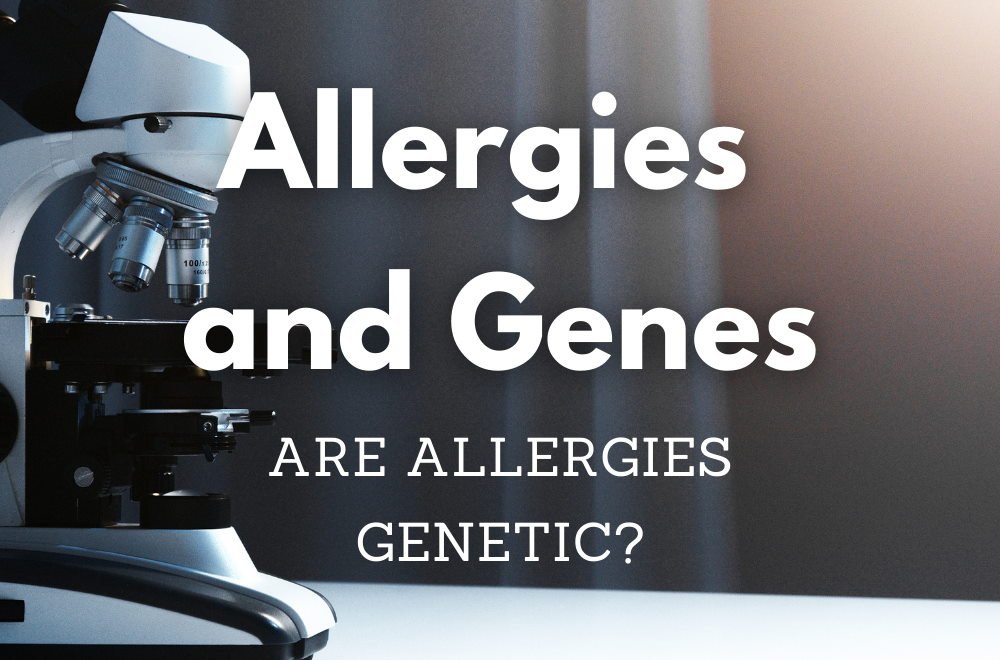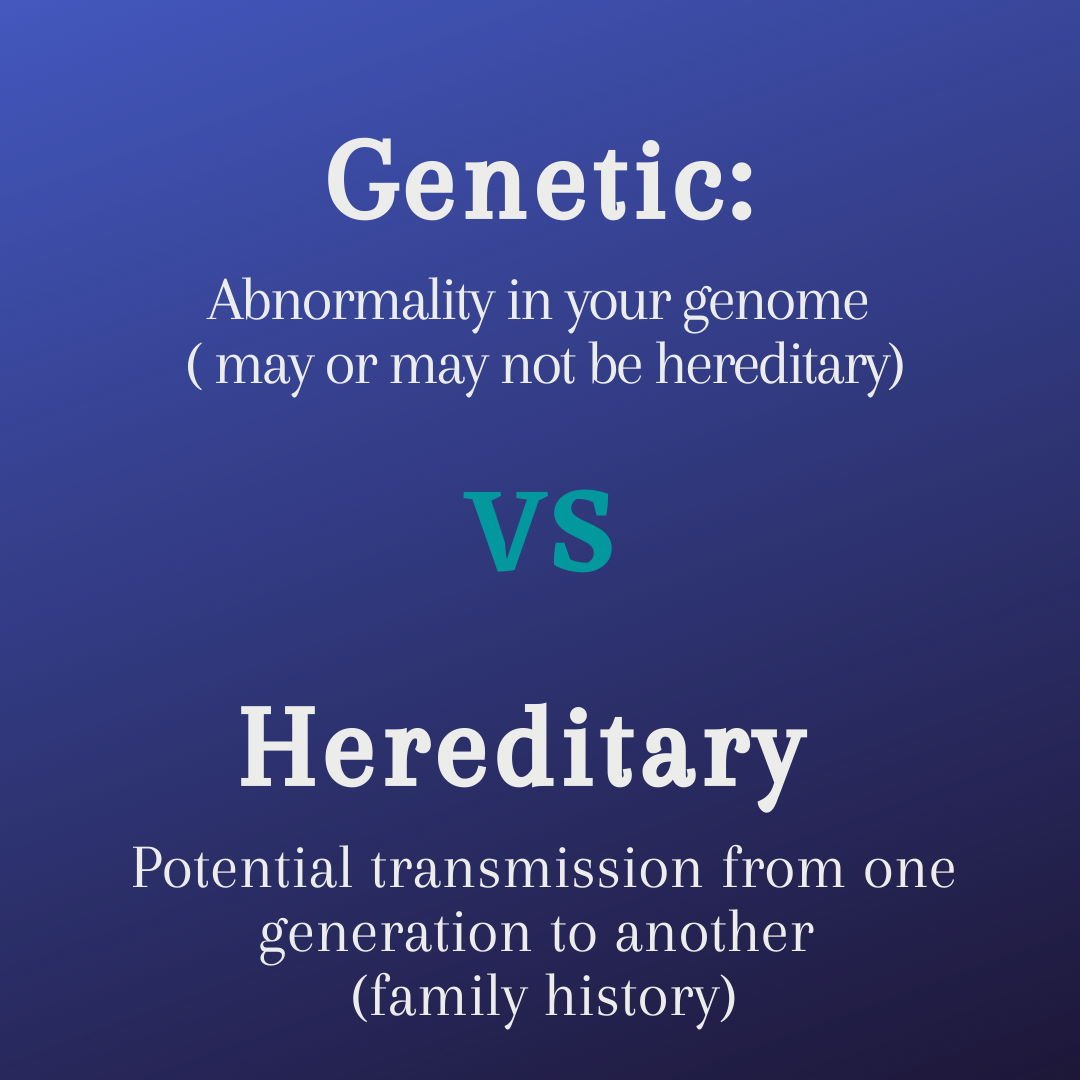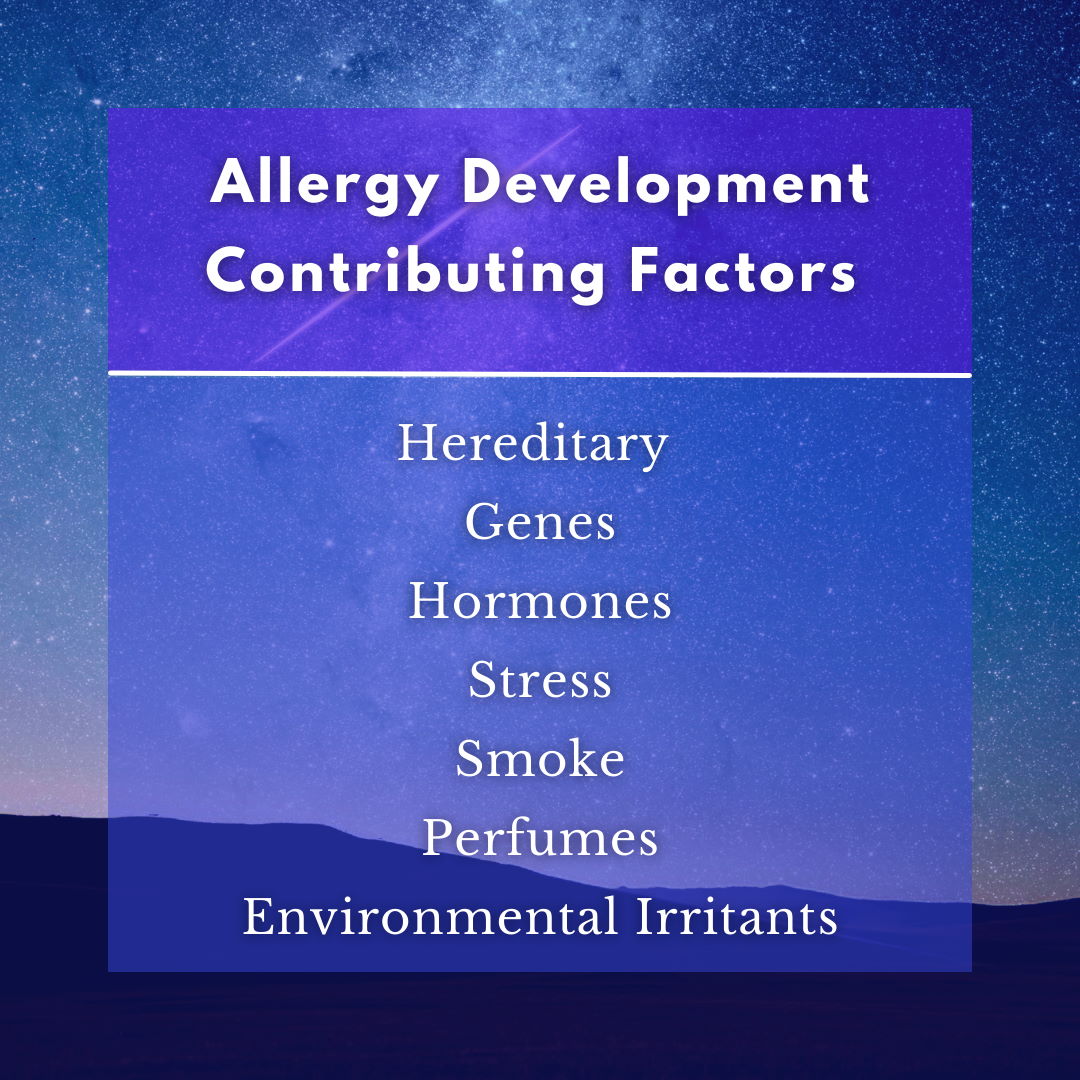Allergies and genetics, are two complicated categories. Are they related or is the connection an old wives tale? Allergic conditions are one of the most common health issues affecting children in the U.S. Are genetics to blame? The question “Are allergies genetic?” maybe popped into your head out of pure curiosity, or maybe you are needing information for a research paper.
Some of you might be looking to have children of your own, or want to have a word with your parents about your allergy symptoms (if you believe you have allergies because of them).
Regardless of your reason, keep reading, and let’s learn!

As an Affiliate member, including Amazon, I may earn a commission from qualifying purchases.
The difference between hereditary and genetic

Before we get into if allergies are genetic or hereditary, we need to have a basic understanding of each term.
This paragraph from PEDIAA explains each term perfectly.
“The main difference between these two terms (hereditary & genetic) lies in the fact that hereditary diseases have the potential of being carried from one generation to another whereas a genetic disease can either be hereditary or not, but there will always be a mutational change in the genome.”
Are allergies genetic?
Yes, genetics and allergies are scientifically linked. According to the article, Genetics of Allergic Diseases, a strong genetic basis has been firmly established.
As genetics are studied and big data information because more available, a stronger link between allergies and specific genes may unfold.
Scientists are looking to find the root cause of allergies and how they affect our DNA. Finding the source of allergies is important so medical professionals can develop specialized treatment plans on a cellular level.
What this means is your allergies show up on your “DNA blueprint” but, this does not necessarily mean that you inherited allergies from your relatives.
Are allergies hereditary?
Yes, expansive studies like the WHISTLER cohort, have concluded with firm evidence that allergies are hereditary.
You are not doomed if your parents have allergies. Just because a condition like allergies may be hereditary, it does not mean you will 100% have allergies. You may or may not have the allergy trait, and developing allergies (or any other hereditary condition) is not a guarantee.
Do allergies come from mom or dad?
Allergies may come from your mom, dad, or neither. Allergies can develop from your own genetics (mutational change in your genome), hereditary (mom and dad), and other environmental factors.

According to Hopkinsmedicine.org, allergies can show up in all of us at any moment throughout our lives. Furthermore, hormones, stress, smoke, perfume, and environmental irritants may also be contributing factors to developing allergies.
Are you born with allergies (genetic) or do you develop them?
According to the “Allergies in Children” research article, You can be born with a genetic predisposition for developing allergies. But the actual allergy development occurs after you are born, from environmental exposures during immune system development. Once a baby is born is when the actual allergy development can happen.
Are bee allergies hereditary?
The most commonly asked question in the realm of hereditary allergies is, “Are bee allergies hereditary?”. Yes, there is a scientific link between allergies and your genes.
Even with bee allergies being hereditary, it does not mean that you will have a bee allergy. If one or both of your parents are allergic to bees, the chance of having a bee allergy is higher for someone who does not have a family history of bee allergies.
Testing your Genes for Allergy Predispositions
Doing a quick internet search, you will find that there are plenty of DNA testing companies. An option you have is to complete one of these tests to see if your genetics put you at a higher risk of developing allergies. These companies also test for many other health risk factors.
Chances are if you are experiencing allergy-related symptoms, you don’t necessarily need a DNA test to see if you are at risk for developing allergies.
There are at-home test kits that have mixed reviews on accuracy. I would talk with your family doctor to see if a genetic test would benefit you and your specific needs. If you are ultimately curious about what your genes have to say, it might be worth it to try the at-home test. But please do not go for cheap or unknown companies.
I believe that you get what you pay for, and the cheapest option could cost you more in the long run. The costs could add up from inaccurate results, loss or breach of health information, or having to pay another company to get a quality test (after you wasted money with the budget brand).
